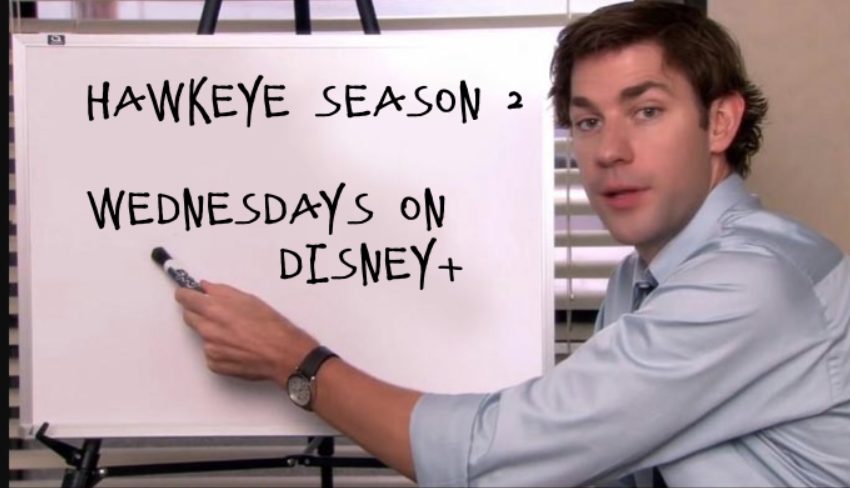Prior to phase 2, Marvel’s feature films were judged by fans on metrics such as whether producers had gotten the characters right, which elements writers borrowed from an original comic book run, and more broadly, how well the adventure was constructed as a film.
MARVEL’S SERENDIPITOUS SOCIAL WIN
Something changed during phase 2 of the Marvel Cinematic Universe (MCU). Black Panther and Captain Marvel in particular were responsible for an unexpected but entirely welcome new tier of socially viral, deep-penetrating and sticky audience engagement with both the MCU and Marvel Comics.
By stirring up positive sentiment outside of their more traditional fan and social channels, Marvel was fielding interest from a diverse range of audience types to achieve broad, mass-market appeal and cultural cut-through like it had never previously known.
Not just the moms and pops, but even grandpa and his live-in carer who has never even heard of Optimus Prime were suddenly nodding happily along to conversations about the positive cultural impact of Wakanda.
Audiences flocked to see the movies, but voted with their wallets elsewhere too. Marvel Comics readership featuring the characters experienced an equivalent boost in popularity during this time when heroes were front of mind for society at large.
These two films by their very nature would act as catalysts for the broader conversation about underrepresented groups in modern superhero films. And like anything controversial on social media, this would generate more interest, more website hits, more audience engagement, and a whole lot of living rent-free in hearts and minds for Marvel the brand.
Marvel had front row seats to the unicorn event of emerging public social issues and diverse, affirming characters who addressed them coming together serendipitously. It was a unique moment in comic book and film cultural history. One which seems to have informed many of Marvel’s production, story, casting, and publicity choices going forward.
INFLUENCER + ACTOR = DOLLAR SIGN
While Black Panther and Captain Marvel were creating positive word of mouth across new audience sectors for Marvel, a new publicity pattern began to emerge on social media: the star influencer telegraphing new information about Marvel’s upcoming plans to fans via a range of social and traditional media channels.
The best individual example of this new breed of influencer-actor, an actfluencer if you will, and the man who wholly embodies and carries this rebooted publicity philosophy for Marvel is clearly Tom Holland.
TOM “THE LEAK MAN” HOLLAND
Tom Holland brings a lot to the role of both Peter Parker and Spider-Man. As Peter, he’s a nervous goofball of talkative energy and restrained confidence that brings almost every version of comic book Peter to life in one authentic-feeling amalgamated package.
As Spider-Man, that quippy disposition translates well to the masked smartass who prides himself on entertaining the bad guys as much as thwarting them.
That’s not all Tom brings to Spider-Man. Believe it or not, he does a lot of his own stunts. Yes, even the flippy bits. Marvel could sell out a stadium with Tom Holland just wall-running and flipping over things.
Tom is an incredibly gifted athlete with years of parkour experience, selling himself as a believable Spider-Man by bringing a unique Spidey-like physicality to the role on multiple levels.
It’s no surprise that Tom never suffered the type of backlash that Robert Pattinson and Ben Affleck—or more justifiably, Jared Leto—received upon news of their casting. With Tom, it was such a natural fit, audiences just kind of went, “oh yep, that’s him alright.”
Which is why it must have been difficult for Kevin Feige to nearly have to fire Tom Holland for leaking everything all the time.
TOM HOLLAND SIMPLY CAN’T BE TRUSTED
The Tom Holland leaking things meme may have begun as a genuine slip-up on Tom’s part, but somewhere along the line Marvel realised that putting Tom Holland on any variety show or Reddit AMA to make announcements disguised as inadvertent leaks by crazy big-mouth Tom received consistent positive engagement from audiences.
One big reaction is all it takes. You get one guy in a focus group saying Wolverine’s the best character ever, and a month later, Marvel’s lineup is Wolverine books all the way down.
In Tom Holland’s case, Marvel saw a potential new channel for social engagement with the brand via its flagship influencers, and elected to further productise not only the characters, but the actors themselves.
If Marvel’s publicity machine is to be believed, Tom has mistakenly leaked so many facts about the MCU that they don’t let him have eye holes in the Spider-Man mask anymore.
Every location and character is wrapped in greenscreen and filled in digitally later to avoid Tom knowing anything at all about the plots.
On the few occasions where Tom has gotten hold of a legitimate script, the Marvel story team were forced by Kevin Feige to rewrite the entire film from act one, scene one.
Perhaps it’s a good thing Tom is so skilled at flips, or he’d be playing Liam Neeson’s nephew on a straight-to-Blu Ray by now.
BRIE LARSON IS A POWERFUL WOMAN
Around the same time as Tom came Brie Larson, hotheaded powerful young woman and champion for equality. She’s angry at injustice and not afraid to sass you for it!
This one backfired slightly as the internet’s toxic masculinity sphere demonstrated their aptitude for getting down in the mud to debate. The back and forth threatened to derail the highly-managed thread of conversation somewhat, but by-and-large the actor’s persona helped to publicise what the character also stood for, and elicited a positive audience response across gender, age, and other prominent dividing lines.
Which isn’t to say that there was anything artificial in Brie Larson’s advocacy, or that the timing made it purely for publicity. Many actors wait for their fifteen minutes in the publicity roadshow spotlight to focus on issues that matter to them personally. More to note that this emerged as the time when an actor’s personal beliefs and public presence had begun to entangle with the film’s narrative, to have a more tangible effect on how the IP and characters were positioned in its publicity run across social and media channels, and setting the tone for future PR strategy.
An interesting question that arises is how much that element of Brie’s personality fed into her casting choice. Was it an influencing factor in her gaining the role, or a happy kismet, as her beliefs aligned so well with the theme of a publicity campaign promoting her similarly- dispositioned leading character.
IMAN VELLANI HAS KEVIN ON SPEED-DIAL
Which brings us to Marvel’s most recent influ-actor casting—a casting some would be tempted to label stunt-casting, if not for the fact that Iman seems to be a Tom Holland-tier fit for the part. Not only as the character she plays, but her role as a Marvel brand social ambassador too.
Iman has famously lambasted Kevin Feige, or “the Kevmeister General” as she’s allowed to call him, in the media for not knowing or not respecting the difference between Earth 199999, which she rightly believes to be the MCU, and Earth 616, the designation for Marvel’s original comic book universe.
More recently, her publicists have come out swinging over big Kev’s insistence that she’s too much of a Marvel fan, if anything.
This tracks with the actfluencer persona of “the actor who was meant to play her character”, pre- destined by her innate fandom and encyclopaedic knowledge of Marvel lore to be the perfect Kamala Khan.
SEPARATING FACT FROM FICTION: JUST STOP TRYING
It’s hard to know how to feel about the kind of meta-influencer publicity that means whatever property Marvel is serving up this week, we’re about to get a media cycle full of funnily ironic colour moments that dovetail nicely with the themes and topics in play.
There’s certainly nothing wrong, or dishonest about this type of publicity, manipulative as it may ultimately be. In an ideal world all marketing would lend itself so readily to cross-channel promotion and neatly-aligned character/actor personality quirks.
Perhaps with John Krasinski now getting about the MCU as Mr. Fantastic, we could see Marvel leveraging its star-power by having John re-enact Jim pointing to whiteboard memes across social channels.

The danger for Marvel creatively is when the next Robert Downey Junior casting situation arises. An actor with potentially negative press or public perception who happens to be perfect for the character role, but may not be the “cultural fit” Marvel is seeking for its ongoing broadband social publicity.
Perhaps we’ve already seen a prototypical version of this scenario play out in the earlier recasting of Terrence Howard’s Roadie and Edward Norton’s Bruce Banner. Rumour had it even then that these choices were about balancing not just character but actor personalities for the marathon production effort ahead.
On the day that Marvel is forced to choose between brand synergy and acting chops, it will be interesting to observe how Marvel’s industry-leading creative decisions are weighed against marketing and publicity concerns.

